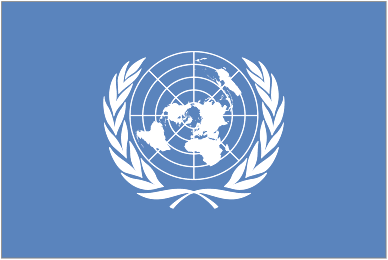
UN Secretary-General Ban Ki-moon has left New York and is on his way to Iran to attend the 16th Summit of the Non-Aligned Movement (NAM).
“The Secretary-General looks forward to the Summit as an opportunity to work with the participating Heads of State and Government, including the host country, towards solutions on issues that are central to the global agenda, including follow-up to the Rio+20 Conference on Sustainable Development, disarmament, conflict prevention, and support for countries in transition,” the spokesperson told a news briefing at UN Headquarters in New York.
Taking place in the capital, Tehran, and under the chairmanship of Iran, the NAM Summit began on Sunday and ends on Friday, and is expected to draw representatives from its 120 members, as well as from various associated observer countries. The UN chief is expected to address the meeting on Thursday.
Prior to his departure, there had been media reports of calls, from Israel and the US, for Mr. Ban to boycott the gathering.
“The Secretary-General also takes seriously his responsibility and that of the United Nations to pursue diplomatic engagement with all of its Member States in the interest of peacefully addressing vital matters of peace and security,” the spokesperson said.
In relation to Iran, he added that the Secretary-General will use the opportunity to convey the “clear concerns and expectations of the international community on the issues for which cooperation and progress are urgent for both regional stability and the welfare of the Iranian people.” These issues include terrorism, human rights, the crisis in Syria and Iran’s nuclear program.
Iran’s nuclear activities have been of international concern since the discovery in 2003 that Iran had concealed its nuclear activities for 18 years, in breach of its obligations under the Nuclear Non-Proliferation Treaty. Iran has repeatedly stated that its nuclear program is for the peaceful purpose of providing energy, but many countries contend it is seeking to develop nuclear weapons.
At a meeting in Moscow in June, Iran and the E3+3 grouping – made up of the United Kingdom, the United States, China, France, Germany and Russia – were unable to reach agreement on concrete and reciprocal measures on Tehran’s nuclear program.
Mr. Ban has previously expressed the hope that the parties can quickly achieve a negotiated solution that restores international confidence in the exclusively peaceful nature of Iran's nuclear program.
In 2011, the Security Council imposed a fourth round of sanctions against Iran, citing the proliferation risks of its nuclear program and its continued failure to cooperate with the UN International Atomic Energy Agency (IAEA).